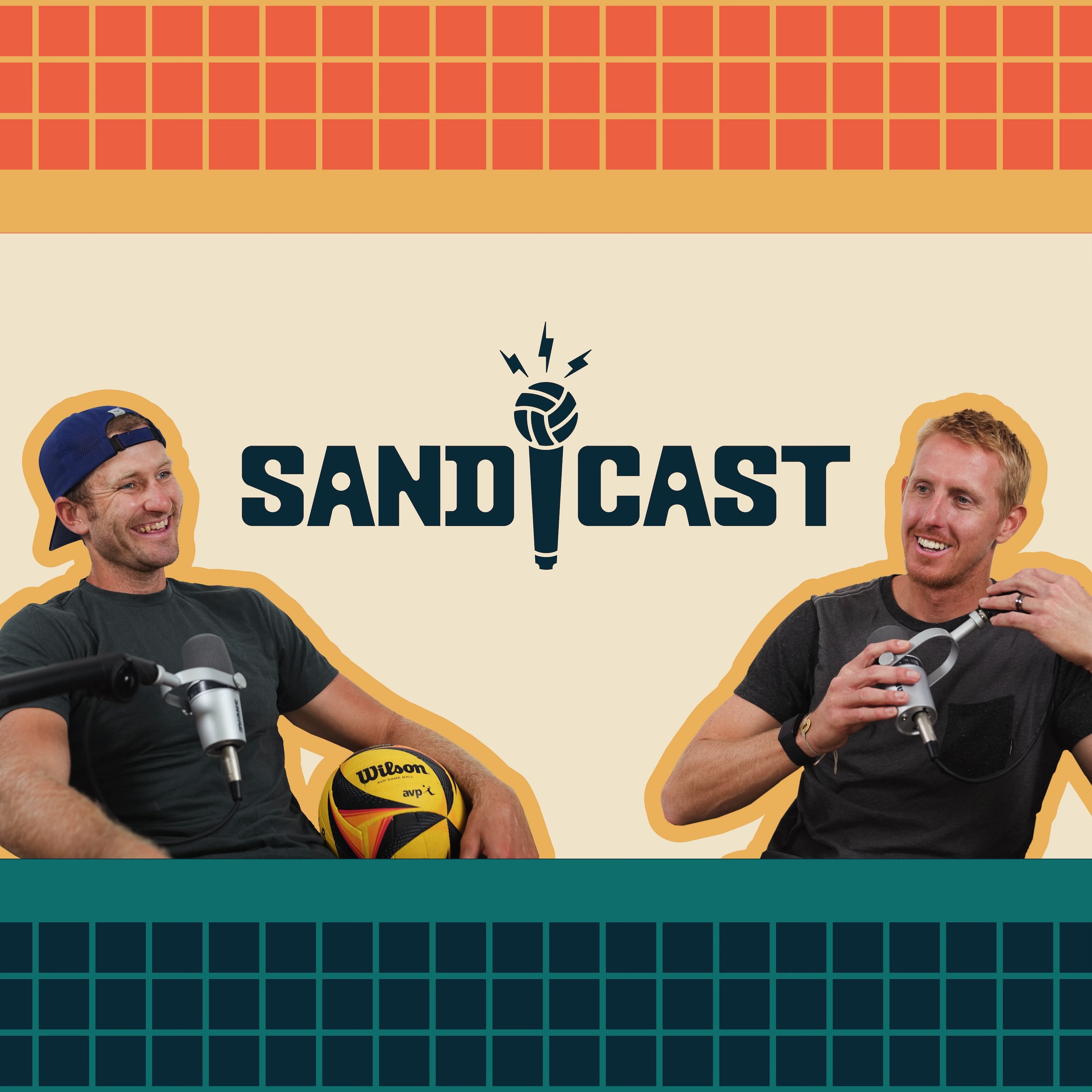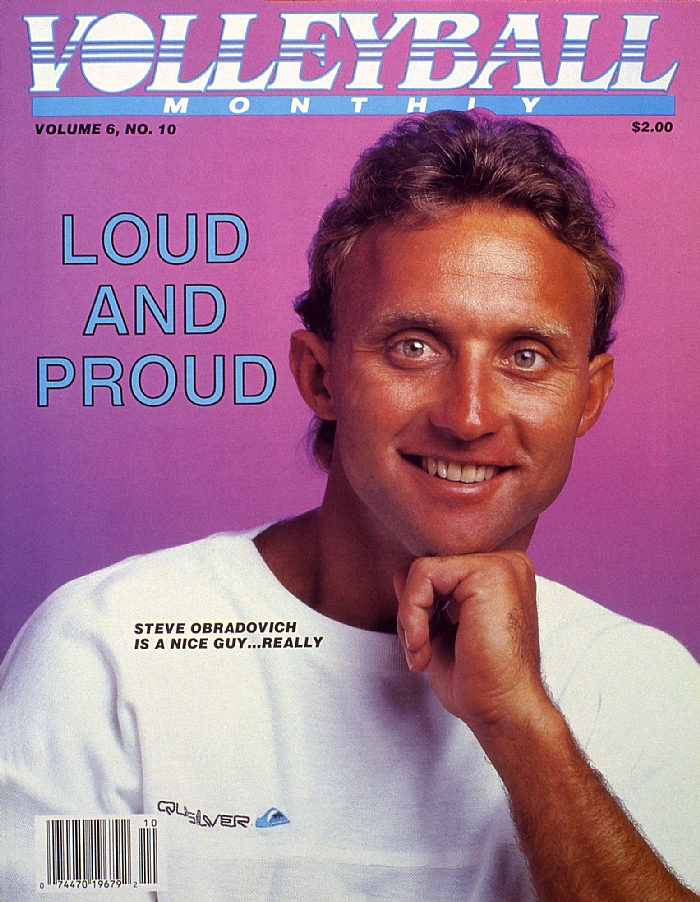

1.1M
Downloads
468
Episodes
SANDCAST is the first and leading beach volleyball podcast in the world. Hosts Tri Bourne and Travis Mewhirter take listeners into the world of the AVP, Volleyball World Beach Pro Tour and any other professional beach volleyball outlets, digging deep into the lives of the players both on and off the court as well as all of the top influencers in the game.
Episodes

Wednesday Aug 01, 2018
Steve Obradovich: The last true beach volleyball entertainer
Wednesday Aug 01, 2018
Wednesday Aug 01, 2018
Rolling with laughter. That’s likely what Steve Obradovich would be doing at the level of trash talk – what little there is, anyway – on today’s AVP Tour.
Passive aggressive Instagram comments? Staredowns under the net? A few over the top celebrations?
Ha.
That's peanuts. Especially to the old school bona fides, the entertainers like OB.
Take this snippet from an LA Times article from August of 1989:
“You see, Obradovich is the bad boy of the beach. He's "OB," the last of the old-time volleyball rogues. Brash and colorful, an entertainer and, well, not exactly humble. One volleyball publication described him as "the best *!%$&!*% player on the beach (just ask him)."
Anyone who has come upon a beach volleyball event since the mid-1970s would likely remember him. He's the quintessential beach boy with the wavy blond hair and piercing eyes who was doing some or all of the following: (1) shouting at his partner; (2) shouting at the referee; (3) shouting at a loudmouth in the crowd; (4) shouting at himself and (5) using a tremendous leap and lightning quick arm swing to spike the ball at improbable downward angles.
Such an athlete. And such language . Enough to make Zsa Zsa blush.
"I've got a kid on the way, I've played 17 years--I've given half my life to the game--and it's time to move on," said Obradovich as he sat at an outdoor table at Julie's, the restaurant across from USC that his family bought 10 years ago and OB now runs. "I don't want to go out mid-year like Mike Schmidt, hitting .220. I didn't want to go out kneeling in the sand getting the . . . beat out of me."
Memorable? Oh, yes. Obradovich’s name still carries weight, a Hall of Famer with a bigger reputation that is as much about his behavior as it is his talent and record.
“A lot of it was just play acting,” he said on SANDCAST: Beach Volleyball with Tri Bourne and Travis Mewhirter. “That’s what it was. I figured that volleyball just needed somebody like that. I’ve always been a clown, always been loud. I was kicked out of a lot of classes. I wanted to be an entertainer. It was just ‘You guys are so boring. We’re never going to get anybody watching us unless there’s some idiot out there. I don’t think they have any idiots now. They put some tight control on them.”
So talented was he that when Chris Marlowe discovered Obradovich finished his career with 11 open wins, including the 1976 Manhattan Beach Open, he was genuinely confused, telling the LA Times that, had OB put his min dto it, he could have won 30 or 40.
Not that OB disagreed. The two-sport athlete at USC was a known critic of everyone else, but he was hard on himself, too, the first to admit that “I didn’t practice.”
Which isn’t to say he didn’t improve alarmingly, staggeringly fast. The first time he played beach volleyball he was 16. By the time he was 21, his name was on the Manhattan Beach Pier.
But he knew the beach, financially, was never a career option, not in his time period, at least. He had to work full-time, selling liquor, driving from Manhattan Beach to Huntington, working at “grubby bars that were open until six in the morning.” Then he worked at his parents’ restaurant, Julie’s, of which he was a part-owner.
“The question of why I kept playing?” he said. “Well, I was good at it, and I liked playing. I just couldn’t – I had to work. I always had to have a job. I wasn’t the type of guy to go lay around, and I didn’t want to be a waiter. I wanted to do something legit.”
He did. He moved to Laguna Beach, got into real estate. Had a family to provide for, you know? It wasn’t the illustrious year of some of his peers like, say, Sinjin Smith and Karch Kiraly or Mike Dodd or Randy Stoklos.
But it was equally as memorable.
“I got more out of it winning 11 tournaments than guys who won 40 tournaments. Everyone wants to talk to me because I was the John McEnroe, I was the color. Nobody wants to talk to a boring guy. People still come up and talk to me…they remember me, because you’re loud.”
No comments yet. Be the first to say something!